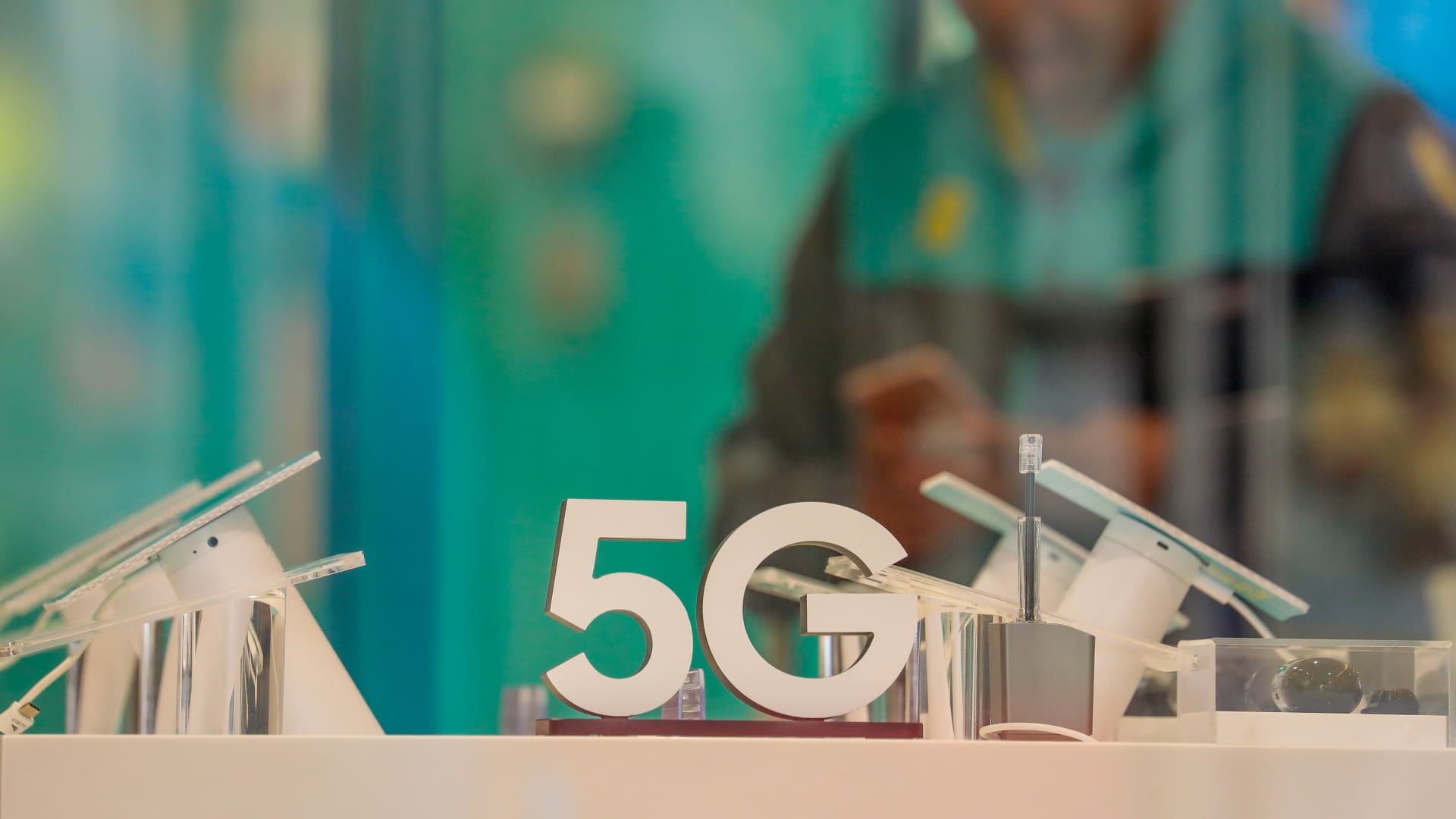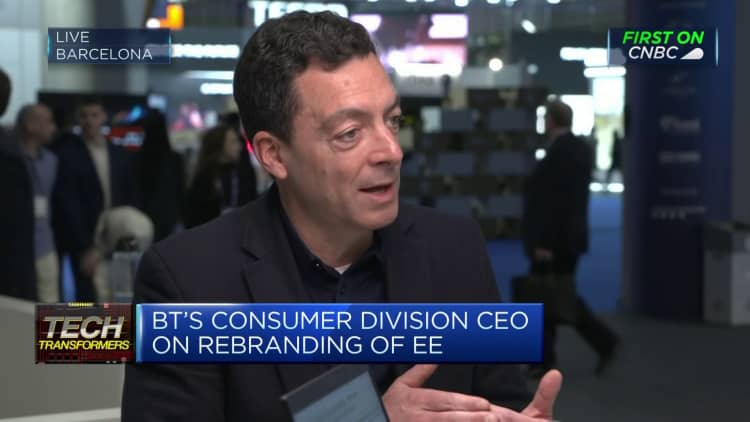

An EE mobile phone store, operated by BT Group, in Reading, U.K. in 2020.
Jason Alden | Bloomberg | Getty Images
BARCELONA — British telecommunications giant BT says it expects to launch its first so-called “standalone 5G” network in 2024.
Howard Watson, BT’s chief technology officer, told CNBC that the telco group plans to switch on its standalone 5G network, which is often referred to in the industry as “true” 5G, later this year.
“Others are talking about it. They’re talking about it. But we are working to get the right ecosystem in place, which means the right set of devices,” Watson said in an interview with CNBC at the Mobile World Congress tech trade show in Barcelona.
That comes after a trial the company conducted with Swedish telco infrastructure firm Ericsson and chipmaking giant Qualcomm demonstrating network “slicing.” Network slicing is a configuration that allows multiple networks to be created on the same common physical network infrastructure.
“We’ve already been ensuring that the SIM cards that our customers have in their current 5G devices can do 5G standalone,” Watson added. “And so once we think there’s enough critical mass to have a real proposition, with some slicing behind it as well, we will launch that, and that will be later this year.”
What ‘5G standalone’ means
5G standalone would give you a slice of the network, or a specific amount of bandwidth with certain latency commitment. Each network slice is effectively an isolated part of the network that’s designed to fulfil the requirements requested by a certain application.
So, for example, if you’re a gamer and you need super-low latency to play a game competitively online, you could use 5G standalone to get latency of nine to 10 milliseconds, close to what you get from an HTTP connection to your home.
Latency is important for gamers as it measures response delays. The higher the latency, the more lag you get when you’re playing a game. This means less smooth gameplay.
“You may not want that 24 hours, seven days a week,” Watson said. “So we might have a really flexible pricing mechanism that says you can have that from 6pm to 8pm.”
“So bringing it to life in propositions for customers is how we will market it rather than with, come and buy some ‘standalone.'”
Milind Kulkarni, vice president and head of InterDigital’s wireless labs, said that network slicing is one step in a number of technological upgrades that will lead to so-called “5G Advanced,” an evolution of the 5G network.
“5G offers a fantastic platform with a lot of capability to support many use cases, and we have to continue our focus in enabling more vertical markets and increasing its capabilities as we march through 5G Advanced,” Kulkarni told CNBC.
5G standalone is different from 5G Advanced, though. 5G standalone refers to the development of a 5G network that isn’t being built on top of 4G cores. Whereas 5G Advanced is a complete evolution of the network.
BT and other network operators are looking to 5G standalone as a way to make more money from the next-generation networks they first started deploying around five years ago.
Future of 5G
Naturally, 5G plans are more expensive than 4G.
But consumers have been struggling to understand the value of 5G — which is often only incrementally faster than 4G — when many regions of the U.K. and developed countries still lack 5G connectivity.
To get 5G standalone networks off the ground, network operators first need smartphone makers like Apple and Samsung to ensure their devices have standalone capabilities.
Apple hasn’t done that in Europe, Watson said, and he’s holding out to see what happens with the next iPhone to see if the tech giant will make its smartphones 5G standalone-ready.
BT’s consumer business had a major rebrand in 2023, which focused on the launch of a full suite of services, an area that telco companies have had less success scaling than digital giants such as Meta, Google, Apple and Amazon.
BT is the U.K.’s leading telecom company, operating fixed and wireless networks across the country. BT’s consumer division has roughly 30% market share in broadband and mobile services.
Its enterprise segment works with larger business customers.
It has been operating the EE mobile network since acquiring it for £12.5 billion in 2016.





